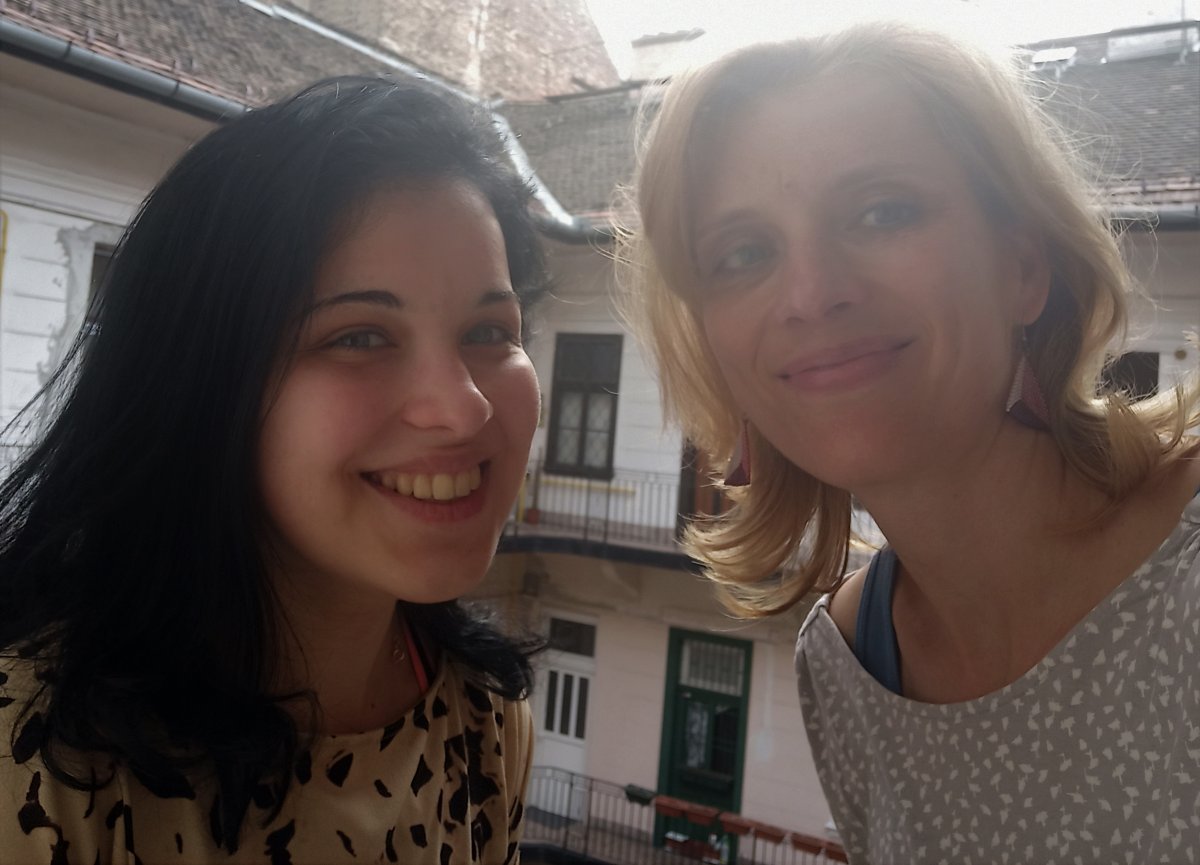The idea to launch the „Cook and Talk” article series came up before the pandemic. Seeing the colourful culture, gastronomy and enthusiastic participation of our international students at MATE International Dinners organised in „Belle Epoque” made me feel that cooking and chatting could work together well to get to know our international students better. The consequences of the pandemic, that is, online classes, involuntary isolation in a foreign country and culture are even more challenging for our international students far from their families and friends.
These circumstances strengthened my determination to work on this article series about international students who cook something typical for their nation and at the same time, talk about themselves.
However, I did not want to have our culinary occasion and talk in cyberspace, in an online interface, missing the experience of delicious smell and taste of herbs which cannot be compensated by modern technological advancements at all.
My first guest in the international kitchen is Alexandra Kalandarisvili, Sandra who invited me to her tiny kitchen in her rental in Budapest and offered me an insight in the Georgian gastronomy.
So let’s cook and talk international!
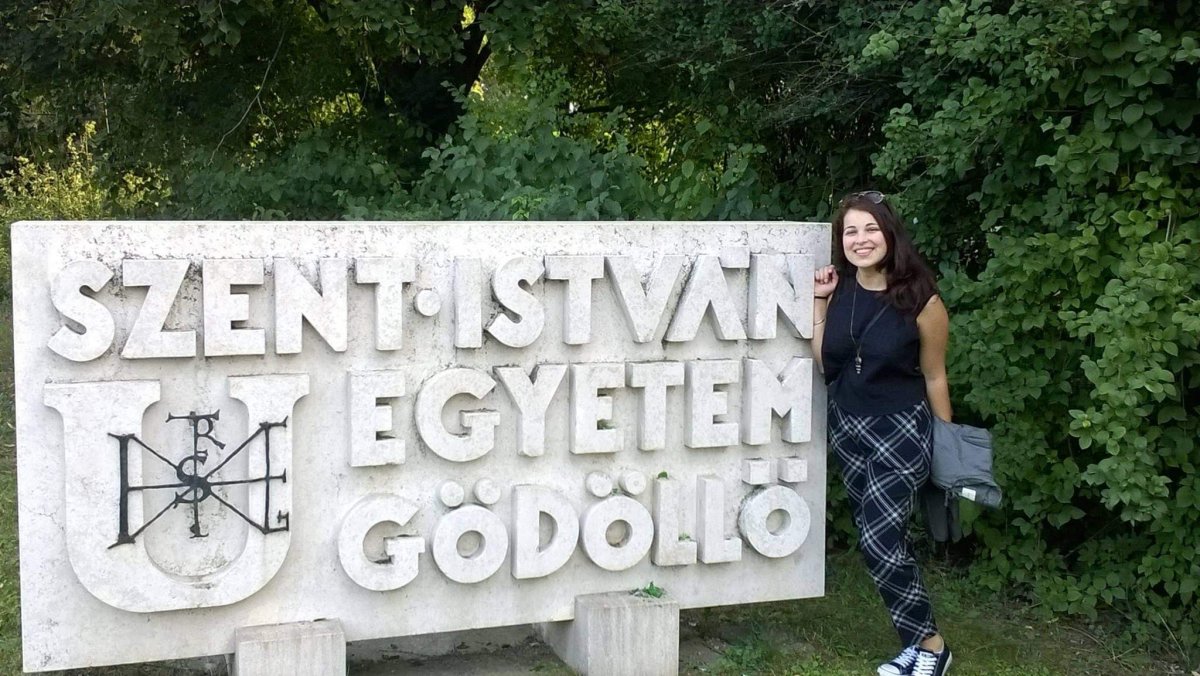
I met Sandra five years ago when she passed the entrance exam to BSc in Wildlife Management Engineering program. A girl with a cheerful smile and beautiful English pronunciation and who earned an excellent degree on BSc level and continued her studies on MSc level, as a wildlife student. For most of us, it is a real challenge to adapt to a foreign culture, school system, but Sandra fitted in well and quickly. She found friends, lived a student’s average life including studying, taking exams and of course, having parties sometimes.
For our meeting, Sandra chose a Georgian stew, called Chakhokhbili. Its ingredients can easily be bought in Hungary. It can be prepared from chicken or pheasant if you prefer game. It is a really substantial meal. While hustling in the kitchen and preparing this not at all difficult menu, Sandra unfolds.
Kinga: Let’s jump back a bit in time! Why on earth does an 18-year-old girl in Georgia decide to study in Hungary?
Sandra: Actually, I applied for two European universities besides SZIU/MATE, a German university in Göttingen. I was eagerly waiting for the decision and SZIU’s admission letter arrived first. I regarded it as a sign. To tell you the truth, wildlife management appealed to me the most and Hungarian hunting tradition I read about earlier fascinated me as well.
Kinga: Did your parents support your decision?
Sandra: Absolutely, they are really supportive and open-minded. As young adults they also proved their mobility. I was born in Moscow, because my father used to work there in a restaurant. I was 8 years old when we moved back to Tbilisi, the capital of Georgia, where my parents come from.
Kinga: So, you finished your grammar school in Georgia?
Sandra: Yes and my first Hungarian-related memory is actually from that period. I had a Hungarian mathematic teacher, Mr. Kovács, who used to write strange words on the board, like „Jó napot kívánok!” or „Viszontlátásra!”
Kinga: Who would have thought that after nearly a decade, you would use those words every day in Hungary!
Sandra: Indeed! Moreover, after I came to Hungary, I found him on the Internet and texted him in Hungarian about my studies here. You can imagine, how surprised he must have been. We haven’t met though, because he lives in the US now.
Kinga: What a story! You mentioned, that in your early childhood your father worked in a restaurant in Moscow. Did he work as a chef?
Sandra: No, he was a manager, but actually he is a fantastic cook. Our today’s dish, chakhokhbili is always prepared by him in our family. He is the chef at home, he is specialised in fish dishes. In Georgia, the dinner is the main family meal. We show off our pride and take our time. Around 8 o’clock in the evening the family enjoys a warm meal, spending quality time together with delicious Georgian wine of course.
Kinga: It sounds to me as if the „slow food” philosophy remained steady in your gastroculture and not a rediscovery, a kind of refuge in our accelerated life.
Sandra: Indeed, when it comes to hospitality and meals, we do our best and there is no rush. A traditional Georgian meal is called supra. There are two types, keipi when we celebrate and kelekhi when we mourn. In both cases there are tons of food on the table, no chance to eat it all up. When guests arrive, the head of the family who sits at the head of the table, appoints a toastmaster the so called tamada. The tamada is responsible for drinks and toasts. So, every time he refills glasses, he gives a toast for God, the country, women, future, kids, people who passed away... A good tamada senses the environment and refills, makes toast accordingly.
Meanwhile our chakhokhbili lunch is ready and the scent of fresh herbs fills the kitchen.
Kinga: Do you take a side dish to chakhokhbili or maybe, bread?
Sandra: No, we drink only wine with it (she laughs). Winemaking in Georgia – just like in Hungary – has a long tradition. We have more than 500 indigenous grapes.
Kinga: I read that in Georgia, you do not use barrels for fermenting and ageing wine, but just like the ancient method, you traditionally use clay vessels. Clay as neutral material, allows the grape to fully express its identity while wood barrel gives a characteristic flavour.
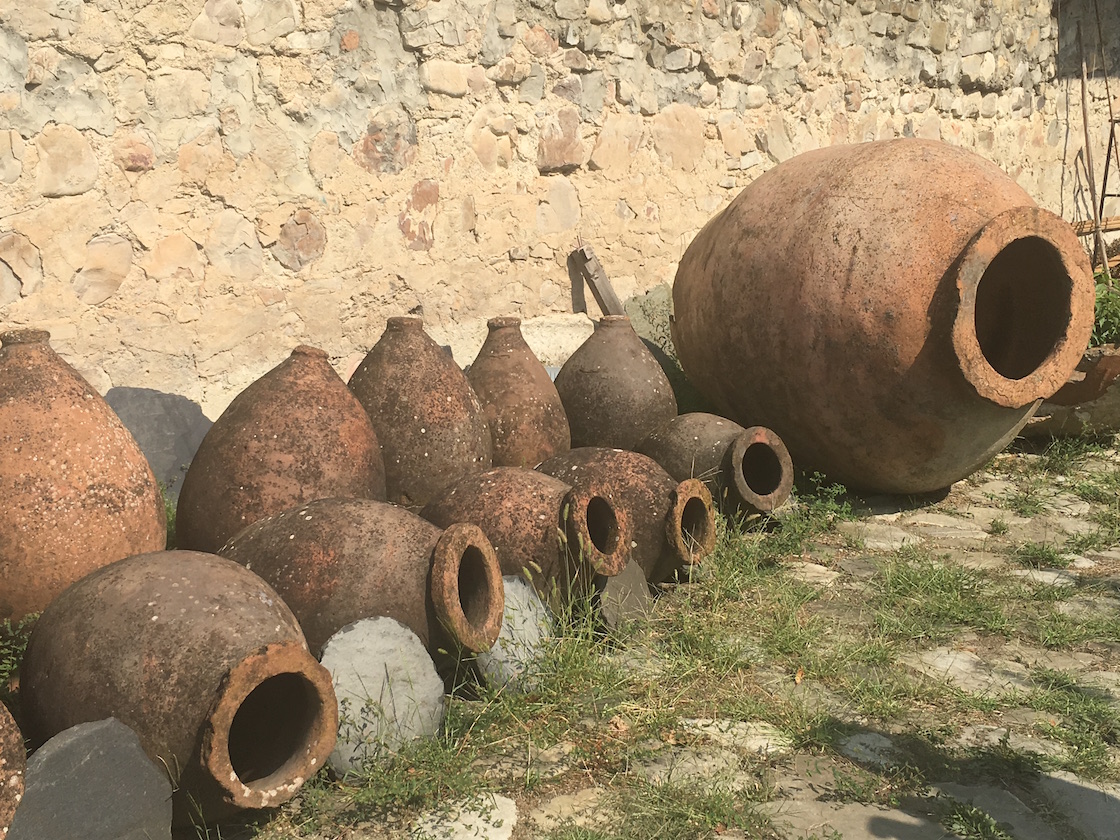
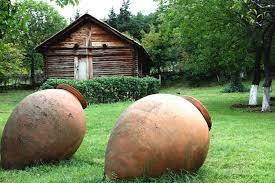
Photo source: https://en.wikipedia.org/wiki/Kvevri
Sandra: Yes, the crockery you are referring to is called Qvevri. Qvevri is dug in the ground and wine is poured in for fermentation. We do keep our traditions in this field, as well. This ancient method has been lately rediscovered by wineries around the world. Now, our lunch is cooked, let’s taste it!
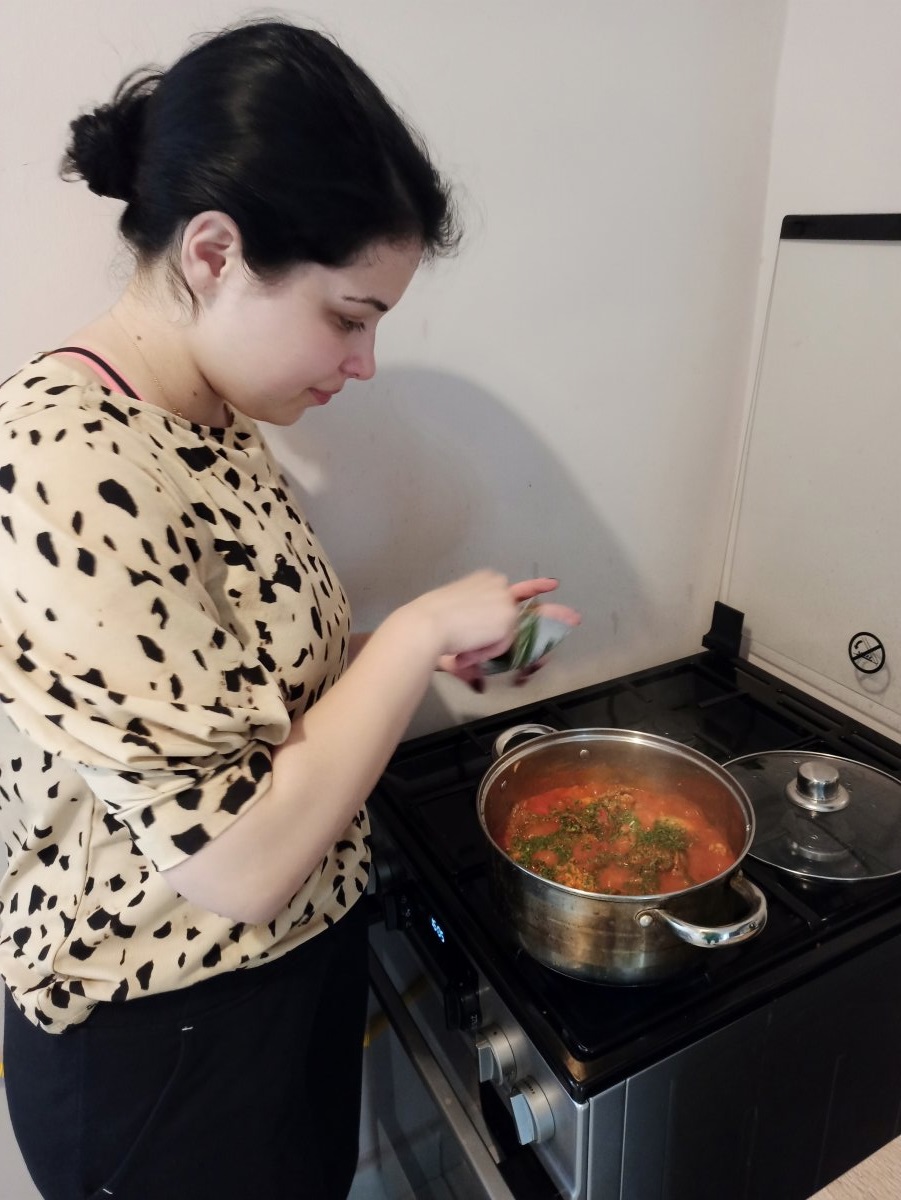
Kinga: Delicious! I hope chakhokhbili will appear on the menu at our next International Dinner! Is there a Georgian restaurant in Hungary?
Sandra: Yes, there are even three in Budapest. My favourite is the one near Deák square. There you should try khachapuri (Georgian cheese bread) and the traditional Georgian cake called medok.
Kinga: Now, after our readers and I have surely had a liking for Georgian meals and we are full, let’s turn back to your studies. You are heading up for your MSc final exam and you also plan to start the PhD program at MATE. I assume, you have found your account in wildlife management course, haven’t you?
Sandra: Yes, indeed. My BSc class was an excellent one, cohesive and proactive. Many of us continued on Master; moreover, I completed the internship together with some of my coursemates at CIC ((International Council for Game and Wildlife Conservation) in Budakeszi. We had an international team there and learned a lot.
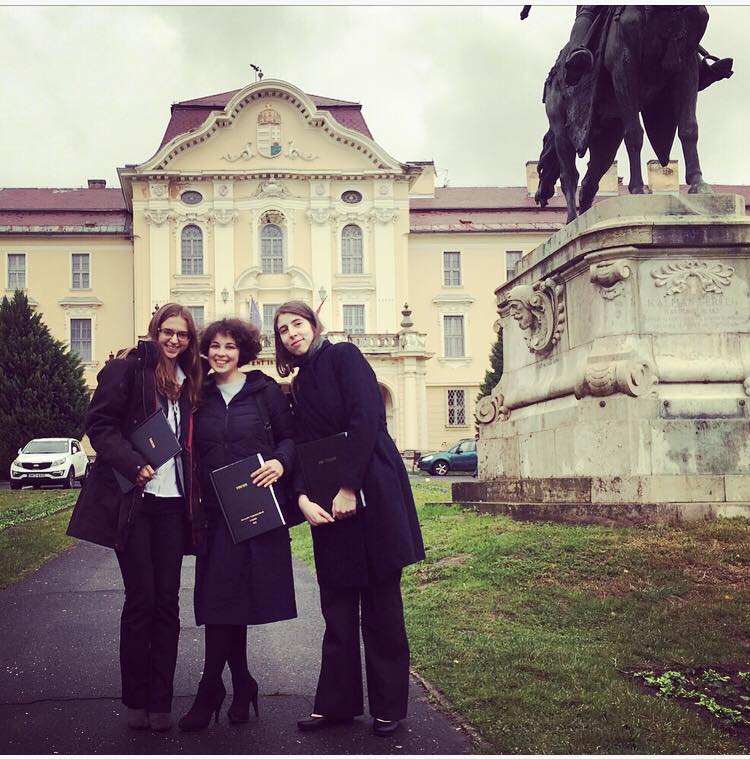
Kinga: That is good to hear, because there is a lot of criticism of freshmen, being not enough practice-oriented and having problems with setting theory into practice. But your example proves that is not a general phenomenon. Do you have time for hobbies?
Sandra: Yes, before the pandemic I used to have tango dance classes and it was a real love. We had dance evening on wonderful venues, for example in Buda Castle. It was an incredible feeling to dance open-air on the top of Buda, experiencing the atmosphere of the city. Before tango, I fell for martial arts, kungfu and with that community I experienced the city from another point of view. Nice memories…
Kinga: Quite a big change from kung fu to tango!
Sandra: I know, but that’s how it turned out. These communities helped me a lot to overcome culture shock. So did the events organised for international students by MATE (Orientation, Opening Ceremony, Poetry Day, International Dinner).
Kinga: We all hope that those events can return after the pandemic.
Sandra: I hope so! So much the more, because with my friends from other Hungarian universities we plan an open-air event under the motto sustainability. Our target group are students, young adults and we would like to invite Hungarian and international NGO-s. We would offer awareness-raising lectures, panel talks and games.
Kinga: Could you name some of those NGO-s?
Sandra: We want to involve NGOs whose daily work revolves around helping, developing society, economy or environment. You would be surprised how many such organizations are based in Hungary, all so driven by their cause. The prime motives are so called SDG-s, the sustainable development goals, put into shape by the United Nations in 2015. The main goal of the UN member states to eradicate extreme poverty by 2030 and reduce inequalities and climate change effects. Further aims are among others, responsible for consumption and production, clean water and sanitation, sustainable cities and communities. We focus on NGO-s which are regarded to hold the first place in these fields.
Kinga: Is the venue of the event already known?
Sandra: Due to the pandemic situation we were planning with an outdoor venue first, the Margaret Island. However, if restrictions might ease, we might think of a Campus venue.
Kinga: Now, it is really hard to plan. Fingers crossed for the realization! As I see, you will not get bored in the summer, after your state exam either. What are your further plans?
Sandra: If I get the admission for PhD, I will spend the next 4 years in Hungary. I will travel to Georgia only for sampling. I haven’t been at home since last summer, so I hope I can visit my family soon. Cooking now the chakhokhbili, tasting the good old Georgian home flavours, made me a bit of homesick.
Kinga: Now, what else could I wish you? Enjoy a real Georgian family dinner very soon, and good luck for your final exam and PhD admission! Thank you for cooking and talking international!
